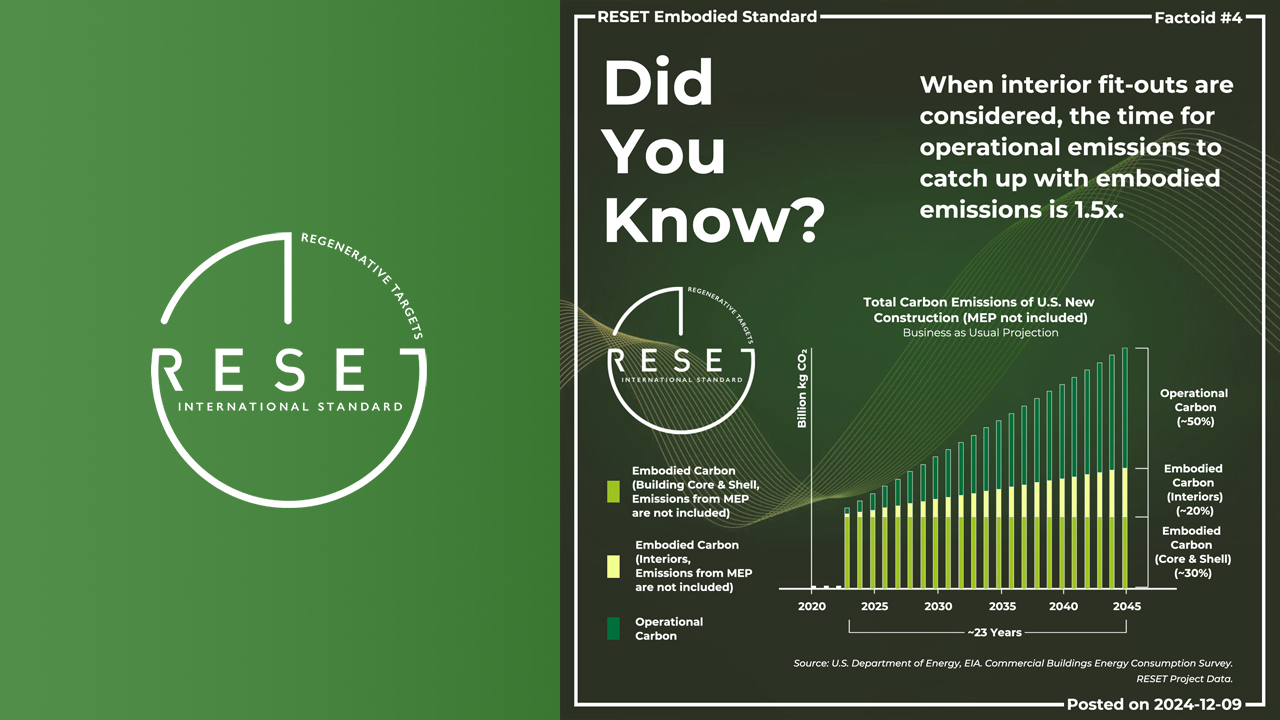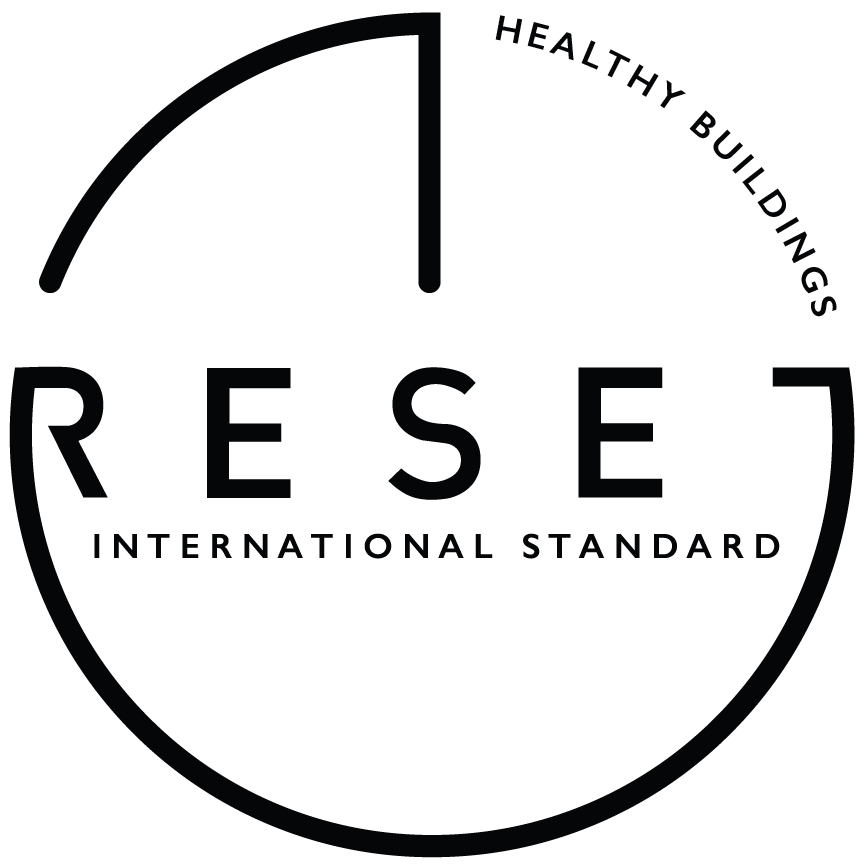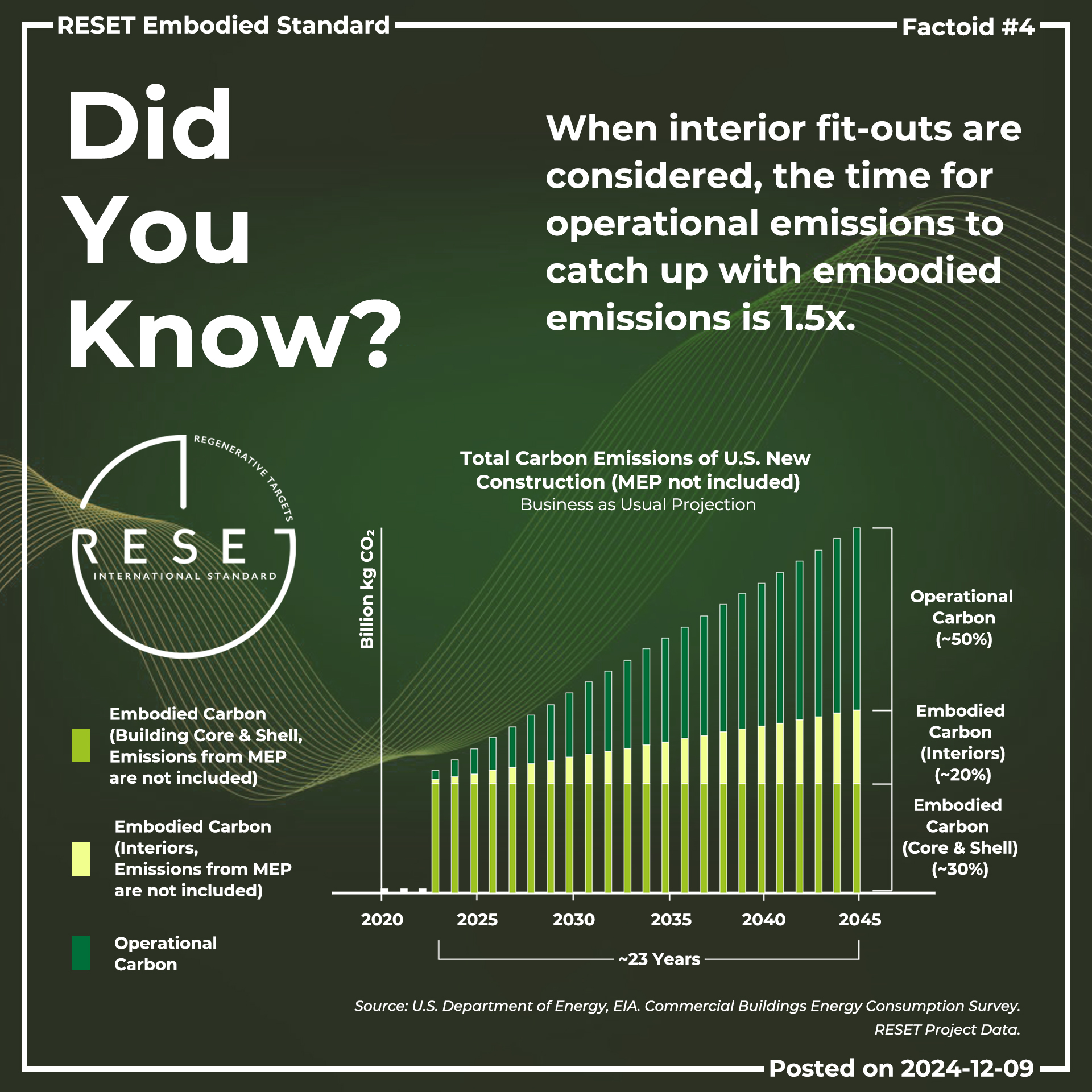Factoid #4 - Embodied vs. Operational over Time with Interiors Included

To highlight the impact of interiors on embodied carbon, we revisited the iconic Architecture 2030 chart and added Embodied Carbon from Interiors to show the additional embodied carbon impact over time.
Including interiors extends the time for operational emissions to catch up to embodied emissions by 1.5x. While Core & Shell embodied carbon remains fixed, interior embodied carbon and operational carbon accumulate over time. Using an 8.5-year average lifespan for interiors from RESET project data, operational carbon that took 15 years to match Core & Shell embodied carbon now takes 23 years in U.S. commercial offices (excludes MEP emissions).
By the 23rd year, interior embodied carbon makes up 20% of the building's total carbon emissions and will continue to increase over time.
Embodied carbon discussions have traditionally focused on Core & Shell, driven by developers and owners. With interiors having a significant impact, tenants should also take an active role. The RESET Embodied Carbon Standard helps better measure and report interior embodied carbon.
Curious how the data changes if MEP is included? Follow us on LinkedIn or subscribe to our newsletter at https://reset.build/subscribe for more upcoming Factoids.
To explore previous data, please click here.
About RESET®
RESET® is an international performance data standard and certification program, created and managed by GIGA, that offers a pathway towards decarbonization by developing actionable and measurable strategies towards regenerative sustainability and health for the built environment. RESET takes a quantitative and holistic approach to embodied and operational data by combining the development of databases, data collection, continuous monitoring, and cloud software to automate reporting and analytics, which then generates opportunities for iterative improvement and optimizations.
The RESET Embodied Standards include Embodied Carbon, Circularity, and Health, while the RESET Operational Standards include Air, Energy, Water, and Waste.
For more information about RESET, please visit: https://www.reset.build/

